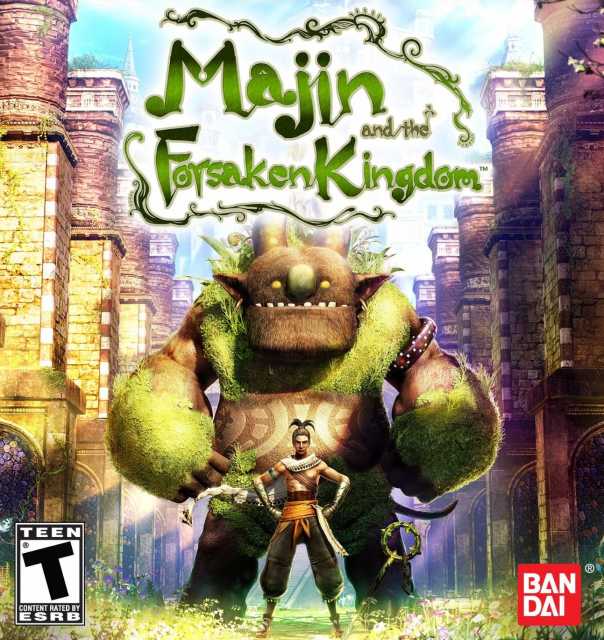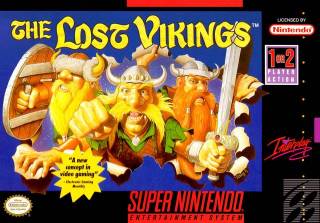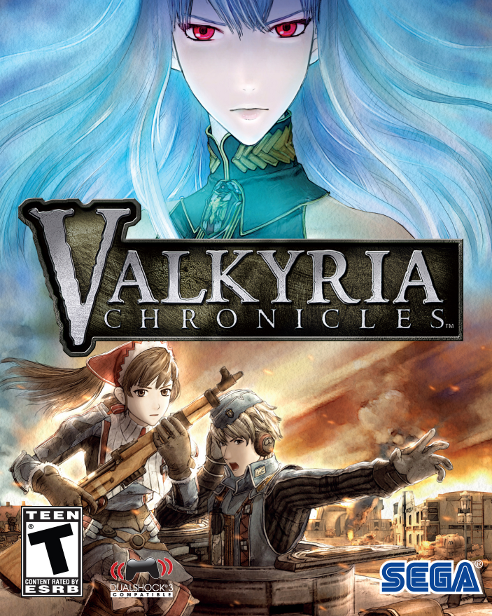So many times I've had to start a blog describing what it's about because the title was so vague that it doesn't really explain anything. Clearly, I am the greatest at titles. The crux of the matter is that "teamwork in games" could refer to all sorts of things. In fact, here are some of those things:
- The "Dom" model, where you and at least one other person (or CPU AI) fight through hordes of enemies and achieve objectives, watching each other's backs along the way.
- The "Pikmin" model, where you direct a little army of helpful fellows to solve your problems. In essence, you are a team manager in these games, not a team player.
- The "Alyx Vance" (or "Majin" if I'm being truthful about the inspiration for this blog post) model of additional characters with different skillsets working in tandem with the player to solve puzzles and progress further.
This week, I'm going to focus on that last model. The co-operative online game is not one I'm not overly familiar with, given how I feel about online multiplayer in general. Which is to say I'm not a fan. Besides, the variation between, say, raiding in WoW and demolishing waves of Locusts in Gears of War 3 would suggest the co-op system is specifically catered to each individual game's strengths and not really a genre in of itself. It is, essentially, the single player game but with more people playing alongside you. Apologies if that sounded reductive in any way: It actually takes some degree of game design wizardry to make a co-operative version of your single player just as entertaining (and the inverse applies too, of course, even though some shooters don't seem to bother).
Like I usually do with these blogs about specific game conceits, I'll bring up a few disparate examples of what I'm talking about and then open the floor to the Giant Bomb community for opinions on games mentioned (or neglected) and how effective they have been. Specifically with the teamwork aspect, a lot is riding on how effective the AI is behind that character, how uniquely useful that character is - and, on the flipside, how aggravatingly useless they are, to the extent that it might as well be a game-long escort mission.
Majin and the Forsaken Kingdom

I just recently beat this traditional tale of a courageous hero, his enormous gentle-hearted companion and their horribly voice-acted animal spy network. Though not the original or best of the sort of single player co-operative experience I wanted to discuss here today, it's still a highly archetypal instance of same and a fairly decent game all told. The player controls Tepeu, a thief who is unable to physically withstand the enemy forces on his own. It is only with the Majin, an immortal being of considerable power, that he stands a chance of defeating the nebulous evil force that has transformed an ancient kingdom into a dilapidated and unnaturally tainted realm of abject desolation.
The game focuses on using the talents of both characters to proceed through areas and, optionally, figure out how to claim various upgrades littered around the landscape in inconvenient locations to make yourselves stronger. In true Metroidvania form, you could easily skip most of these occasionally well-hidden upgrades (or be forced to skip them as they require certain abilities you might not have recovered yet - sound familiar?). The easy enough bosses would suggest that these upgrades aren't entirely necessary to see the game through, though that could also suggest a certain age range intended for this game. If you saw Brad and Vinny's Quick Look, they inferred as much about its child-friendly "poor man's Studio Ghibli" aspirations in its central relationship of the optimistic kid and his immortal nature deity best friend.
Really though, the strength of the game isn't in its Metroid item-collecting and backtracking, the weak bosses and especially not in the stealth sections (which are thankfully not at all enforced by the usual "get spotted, restart" rules) but rather in how the player interacts with the Majin to solve the various puzzles the environment has created for them. Whether its instructing the Majin to operate revolving bridges and catapults, finding a way to unbar a door so the Majin can pass through it or the various ways you can team up for combination attacks in combat. Though perhaps less diverse with its puzzles as it could be (though as a 10-15 hour game it hardly outstays its welcome with the few it does have), the gameplay has the benefit of directly feeding the player's investment in that central relationship - i.e. the most important narrative element the game has going for it. I knew I grew pretty attached to the big lug before too long. I mean, they even have a happy little dance they do whenever they solve a tricky puzzle. It's adorable. I'm probably a terrible person for digging this babby game for babbies, but whatever.
The Lost Vikings

Perhaps the most recognisable example of a team-based game that isn't about a bunch of space marines tearing shit up on a server somewhere is the Lost Vikings, a game about three Norsemen who are captured by a vegetable-based (fine, fruit-based) alien for his exotic menagerie. Rounding out the trio are Erik the Swift, a fast Viking capable of jumping who is the only one able to reach certain areas due to his athleticism; Olaf the Stout, who uses his shield to safely block attacks and slowly descend long drops; and Dohvakiin the Dragonborn, who is able to use his powerful voice to send enemies flying and thus make areas safe for the others.
It seems a little pointless to get any deeper into the Lost Vikings than that: The game created the diverse team puzzle game to some extent (or Lemmings did, but whatever, they didn't have little Viking helmets). Sometimes each Viking would be necessary to complete the level but sometimes a single Viking would be the cause of strife as others go about getting him to the goal safely. However, it was always the intent of the level designers to use that Viking's shortcomings to create a challenge for that specific level, rather than misjudging the usefulness of that particular companion. Though a simple game mechanically, it managed an impressively diverse set of challenges that could be solved by the collective skills of its Scandinavian trio and continues to be the paragon of this sort of co-operative puzzle game.
Valkyria Chronicles

I'm simply using Valkyria as an example of the sort of squad-based game that is strongly focused on the importance of troop specialization and ensuring that each specialization is represented in some way. You could make a similar case for Team Fortress, Fire Emblem, the original Final Fantasy and many others, though it's my opinion that Valkyria Chronicles is the most dependent on this particular aspect of the team dynamic. At least out of the ones I've played recently.
So what do I mean by that, exactly? Simply put, each unit type in Valkyria Chronicles is indispensable. While the Edelweiss tank - the central component of almost every skirmish - has its various uses in combat, it's the team of soldiers you build up around it that will make or break the battle. There are the Shocktroopers, who are the only ones physically able to lay down the law in close encounters. There are Scouts, who have decent accuracy and are essential for locating enemy units and keeping an eye on what they're all doing. The Lancers are necessary for bringing down tanks (at least from the front). Engineers are necessary for fixing the tank, restocking ammo of other units and remove troublesome landmines. Snipers are necessary for eliminating certain targets. What this boils down to is that each unit type is necessary, which is why I used that word so much. Also, I have misplaced my thesaurus.
Valkyria Chronicles isn't an easy game. Besides the disorientating switches between turn-based and real-time combat, the main difficulty comes from how each stage has its own hidden rules (such as a non-obvious critical path to avoid enemy tanks and gun encampments, or a certain silver-haired lady going Super Saiyan after so many rounds, for example), its own hidden requirements to win (simply surviving for x number of rounds, or defeating a certain unit) and, more often than not, literal hidden soldiers and landmines lying in the undergrowth that you will more than likely trip over as you feel each stage out for the first run. Without fail, I would play a battle, get someone(s) killed, fall into traps and ambushes, slowly figure out how everything is supposed to go down and then restart the level with that prescience so I could ace it for the maximum amount of reward and acclaim. A cheap path to victory, perhaps, but an increasingly essential one. The only universal piece of advice that I took to heart was to bring one of every unit type, because it is not worth it to discover late in a skirmish how vital to success a certain unit you didn't think to include really is.
So now you guys have at it. Best game that takes advantage of each separate entity's talents? Is this a format that appeals to you, or do you prefer a level playing field with identically-powered playable characters in your co-op games? Any particularly good/bad AI companions you've met in your virtual travels? Will I keep asking questions forever? Are there comics coming up next?
BONUS COMICS!
Majin and the Forsaken Kingdom

Log in to comment